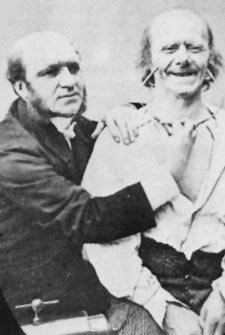
Emotional abuse, according to pcychologists, is is any kind of abuse that is emotional rather than physical. It can include anything from verbal abuse and constant criticism to more subtle tactics, such as repeated disapproval or even the refusal to ever be pleased. Manipulators of emotional abuse can make their victims feel guilty, to make their self- esteem irrelevant. Who usually suffer from emotional abuse? Of course people, who are very sensitive and easilly damaged – women or children.
In women case, they usually marry men, who demonstrate a lot of attention for them. After the wedding more and more they are getting hit by their husbands. After the physical abuse comes the emotional abuse – a husband shows his guilt and tries to please all woman‘s needs. After pleasing time, the hitting comes again.. the hunsband manipulates the situation psychologically in such way, that his beatings he ascribes to a woman – for her to feel guilty. Of course, mostly physical abuse comes with verbal abuse.
The most important thing is that if you ask a woman, why she doesn‘t leave her husband, if she suffers from beatings of her husband, she would probably say, that she hopes that was the last beat. But unfortunatelly it never is. Soon the husband becomes uncontrollable and he only wants that his woman only stay at home and satisfy all his wishes.
Children abuse contains about 8% of all children abuse. Manipulators of children can make a lot of damage for them, because brains are not set enough and it is possible to damage emotionally irreversibly. Usually during emotional abuse period, the victim comes to see him or herself as unworthy of love and affection.
Psychologists separated five types of emotional abuse for children:
Denying - parents reject their bond with children, show that children are unwanted.
Ignoring – parents do not have a bond with children – psychically they are there for them, but not emotionally.
Terrorizing – parents try to punish and criticize their children, even threaten with death.
Isolating – try to isolate children from their sight to make them „learn“ a lesson.
Corrupting – parents allow children to do anything, what should be restricted to them: use alcohol, drugs, watch pornographic tapes and so on.
Emotional abuse is a very big problem in nowadays society. We should do everything to prevent it. It is recommened for people, who suffer from emotional abuse to go to help centers or at least try to talk to psychologists or friends.
In women case, they usually marry men, who demonstrate a lot of attention for them. After the wedding more and more they are getting hit by their husbands. After the physical abuse comes the emotional abuse – a husband shows his guilt and tries to please all woman‘s needs. After pleasing time, the hitting comes again.. the hunsband manipulates the situation psychologically in such way, that his beatings he ascribes to a woman – for her to feel guilty. Of course, mostly physical abuse comes with verbal abuse.
The most important thing is that if you ask a woman, why she doesn‘t leave her husband, if she suffers from beatings of her husband, she would probably say, that she hopes that was the last beat. But unfortunatelly it never is. Soon the husband becomes uncontrollable and he only wants that his woman only stay at home and satisfy all his wishes.

Children abuse contains about 8% of all children abuse. Manipulators of children can make a lot of damage for them, because brains are not set enough and it is possible to damage emotionally irreversibly. Usually during emotional abuse period, the victim comes to see him or herself as unworthy of love and affection.
Psychologists separated five types of emotional abuse for children:
Denying - parents reject their bond with children, show that children are unwanted.
Ignoring – parents do not have a bond with children – psychically they are there for them, but not emotionally.
Terrorizing – parents try to punish and criticize their children, even threaten with death.
Isolating – try to isolate children from their sight to make them „learn“ a lesson.
Corrupting – parents allow children to do anything, what should be restricted to them: use alcohol, drugs, watch pornographic tapes and so on.
Emotional abuse is a very big problem in nowadays society. We should do everything to prevent it. It is recommened for people, who suffer from emotional abuse to go to help centers or at least try to talk to psychologists or friends.


